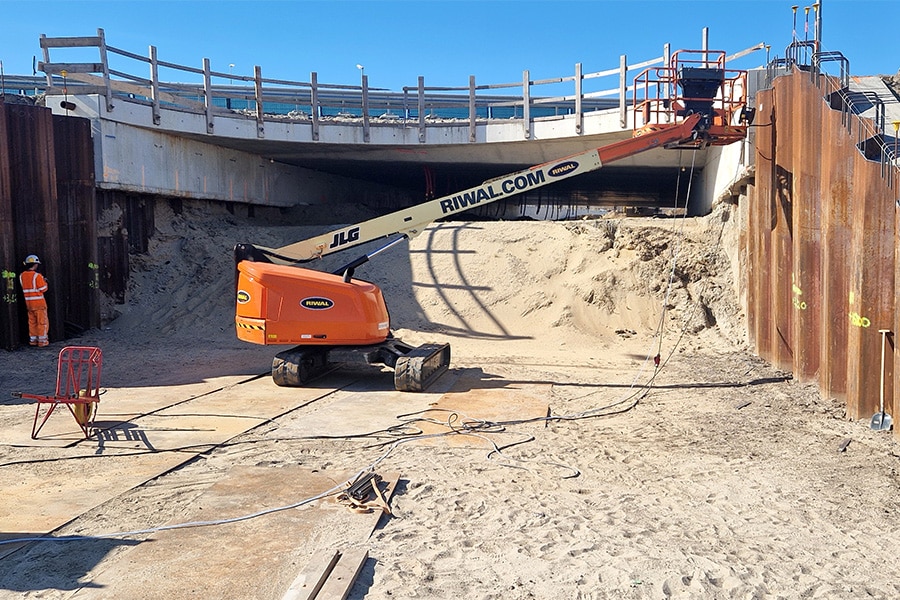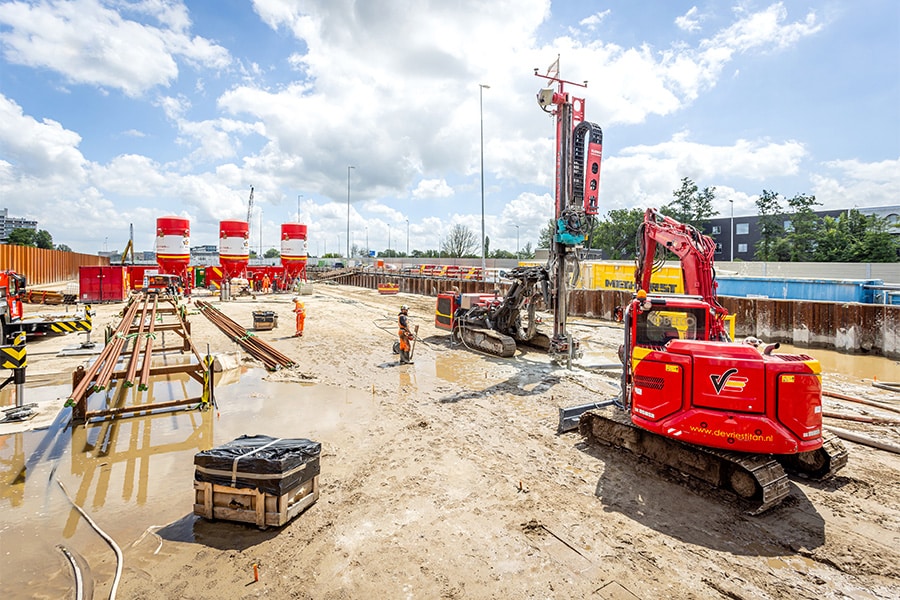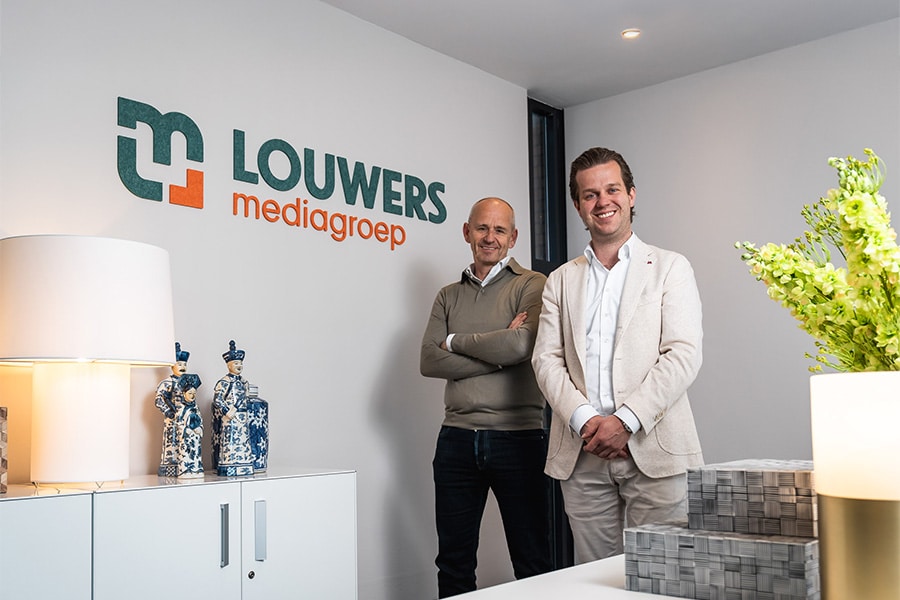
Road to zero is one with bumps
Interview with rastechneut and entrepreneur Lars Kool
2024 is drawing to a close. A good time to sit down with Lars Kool and look back on an eventful year over lunch. And to look ahead to 2025. Is this visionary, who does not mince his words, still full of ideas or does the owner of Urban Mobility Systems from Oss feel somewhat like the Don Quixote of energy transition?
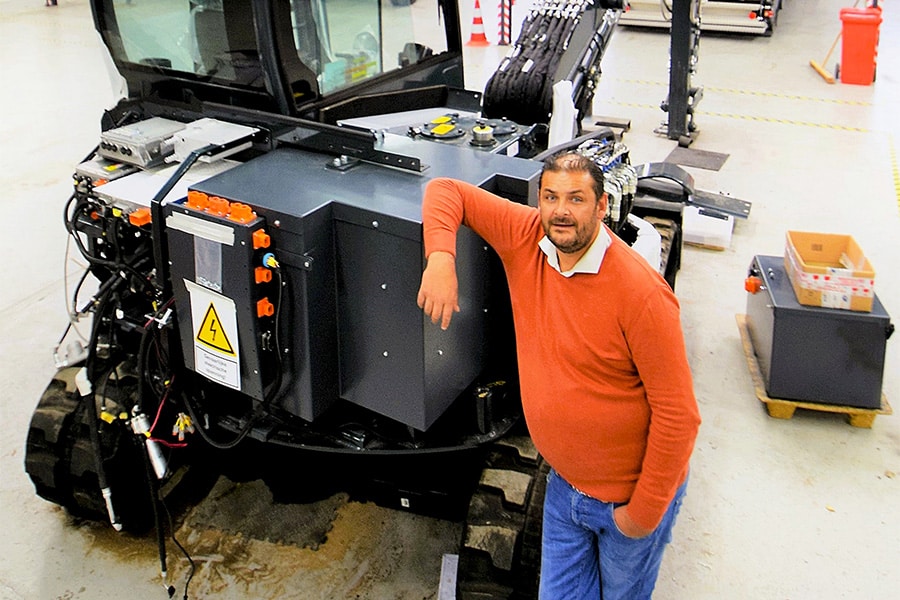
After a brisk start, with major construction groups flocking to zero-emission equipment, sales of electric machines now seem to be stalling a bit.
"In the Netherlands yes, but around us the world has woken up and we are now being overtaken on all sides. Of course, the Netherlands is only a small player in the market, but as a testing ground for the development of zero-emission solutions for construction, we should be in a better position to cash in on that pioneering role."
So where does it go wrong?
"The road to zero is not a six-lane highway anyway, but one with bumps. The transition proceeds in waves. A lot is going well in the Netherlands, such as calling for zero-emission construction equipment in tenders. There is even a sizeable subsidy pot available to facilitate that investment. It's just a shame that the money is not being spent to reward the use of zero-emission machines instead of purchasing them. Now the available budget ends up with a relatively small group, with some baggers applying for subsidies for both machine development and purchase. In that respect, I am not proud of what we are all doing. Don't get me wrong; I'm not talking about the technical side of electrification."
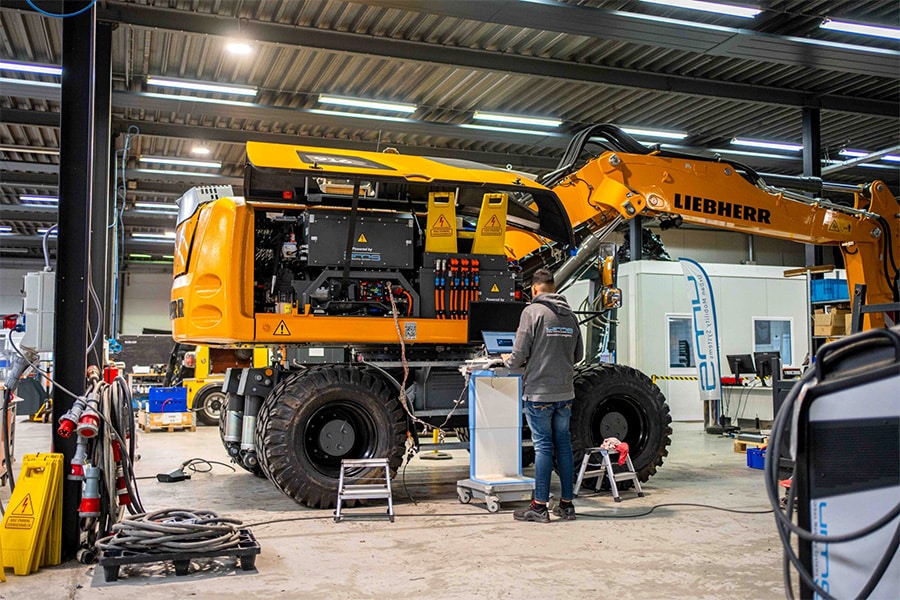
How do you view competition from Asia in this regard?
"The Chinese brands are now also coming out with electric machines at attractive prices. Yet I don't see that as a threat right away. The more favorable new car price is largely offset by a lower residual value. Of course, the Chinese are making great strides when it comes to build quality, and the cars from the country are hardly inferior to the familiar European models. I foresee a similar trend at the material level as well. Various Chinese manufacturers will undoubtedly gain a foothold here, but even then I do not consider it a serious danger."
Please explain that in more detail.
"We are creative enough to ward off the Chinese advance. To do that, however, it is important to join forces and leverage Western know-how as much as possible. If we empower everyone, we will win over this economic powerhouse. We are not machine builders, but we are top of the bill when it comes to efficient electric powertrains. It is up to the OEMs to package these into an attractive product, while concerns such as Shell, Total and BP should take on the role of power supplier and take care of swapping battery packs. They generate enough green power to play a significant role in the charging infrastructure."
Are change packages the key to success?
"Absolutely! UMS will soon present a completely new design that will amaze the market. With it, we are taking the concept of battery-electric equipment to an even higher level, both in terms of safety and ease of use. A swap pack offers many advantages over a fixed battery pack. It takes much less time to swap batteries than to recharge them, so a machine can get back to work faster. Moreover, you can charge the packs wherever you want, without all the hassle of a heavy mains connection or gigantic battery containers on the construction site. It also offers advantages in terms of TCO. By leasing such a swap package and charging in kWh's, the basic machine becomes significantly cheaper, even cheaper than a diesel variant."
This could give a huge boost to the energy transition, which today is still largely dependent on subsidies.
"A different distribution of the subsidy pot would make it so much easier to persuade even small business owners to green their fleets. By shifting the budget from the purchase side to the deployment side, you immediately make it part of business operations. It becomes important to consider the purchase of electric equipment as a business model, just as is done now with diesel machines. The TCO has to be right. I dare say that it should even be profitable without subsidies. As long as we act together as an industry."
Give an example of what that collaboration can lead to.
"The first thing that comes to mind is the ART-E asphalt train. An electrically powered machine that mills out the old asphalt on site, recycles it and puts it back down as a 'new' layer. How circular do you want it to be? What that saves in machine and especially transport movements. All those asphalt tippers are redundant at once. If all asphalt work is done by the Asphalt Recycling Train, we save 5 tons in euros per day! It is not for nothing that this initiative is being hugely promoted by the Department of Public Works and almost all road construction companies want to get on this train."
So a nice step forward.
"My vision is that the world is big enough for everyone. We don't need to hold our cards anxiously to our chests, but rather work together on solutions for a zero-emission construction site. I want to move forward and preferably involve as many parties as possible. Think about schools. In view of the new factory in Arnhem, we have already hired many young people. They are all like, 'This is the future. I want to be part of this.' That's cool, isn't it? I also see an important role for banks and insurers when it comes to control and enforcement. Every machine that rolls out of here bears the name of the manufacturer. That's pretty special, you know. But that's how it should be. The bar is therefore high. Many converters still use NMC batteries, which are a fire hazard. If such a machine catches fire near a Natura 2000 area, the consequences - both environmental and costly - are incalculable."
That would put a big damper on ambitions.
"We are not going to meet the 2030 targets. We all have to be that honest. And neither are those for 2035 and 2040. Charging infrastructure is already a problem, so how on earth do you want to scale up further? Moreover, the Netherlands has just about the best infrastructure in the world, both above and below ground. It is not without reason that manufacturers have put the introduction of electric models on hold."
Aren't you afraid of ending up like some kind of Don Quixote, fighting a hopeless battle in the pursuit of goals?
(Laughing:) "We must not wait, but go on. There's a lot in the pipeline for 2025. UMS will start the year from a brand-new factory in Arnhem, where up to 3,000 battery kits a year can be built. If we scale up to three shifts, then even 9,000 kits. As mentioned, a completely new battery technology for battery electric machines will be introduced and we will soon announce a new collaboration with a major manufacturer. More on that later, but that we're going to bang, that's for sure."
